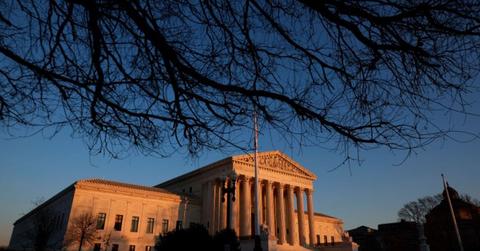Can You Filibuster a Supreme Court Nomination?
President Biden is preparing to nominate a justice to replace retiring Justice Stephen Breyer. Republicans in the Senate won't be able to block his nomination with a filibuster.
Jan. 27 2022, Published 10:54 a.m. ET

As President Biden mulls over potential Supreme Court justice nominees, the possibility of a Republican filibuster might concern the Democrats. However, due to changes made by Congress in 2013 and 2017, the Republicans can’t filibuster a Supreme Court nomination.
Congress debated a filibuster change regarding legislation in January 2022, but the proposed revision failed after two Democratic Senators opposed it. However, Supreme Court nominations are considered differently than legislative issues, so the Republicans won’t be able to filibuster any nomination by Biden for the court.
How has the Senate used the filibuster?
The Senate has used the filibuster over the years to delay or halt progress on bills. As The New York Times reported, in 2013 Democrats changed the rules to “allow most executive branch nominations to skirt an attempted filibuster with a simple majority of 51 votes.” The Supreme Court didn’t apply at the time.
In 2017, Republicans expanded that exemption to Supreme Court nominees, which enabled Donald Trump to successfully fill three vacancies on the court while in office. In effect, this means that the Senate doesn’t need to secure 60 votes, but only 50 + 1 to confirm Biden’s pick.

Supreme Court Justice Stephen Breyer in 2014. His retirement prompts a nomination by President Biden.
Biden will nominate a new justice to fill the vacancy when Stephen Breyer retires.
Currently, President Biden is considering possible nominees to the Supreme Court to fill the upcoming vacancy when Justice Stephen Breyer retires. Breyer has held the position since 1994, which is longer than any other justice appointed by a Democratic president.
Biden spoke about nominating a Black woman to the Supreme Court during his campaign and several names of potential nominees are circulating. As CNN reported, some of the women under consideration for the nomination are:
- Judge Kentanji Brown Jackson
- California Supreme Court Justice Leondra Kruger
- South Carolina US District Court Judge J. Michelle Childs
- Civil rights attorney Sherrilyn Ifill
- North Carolina Supreme Court Associate Justice Anita Earls
- District Judge Wilhelmina "Mimi" Wright
- Circuit Judge Candace Jackson-Akiwumi
- Circuit Judge Eunice Lee
What could happen with a Supreme Court nomination?
After President Trump was able to nominate three new justices during his term, Democrats certainly want a chance to add a new justice to keep three seats on the liberal side. However, it isn't guaranteed that Biden will be able to implement his pick for the highest court. His success in naming a Supreme Court justice depends on the timing and full support of Senate Democrats.
One obstacle for Biden is timing and whether or not Congress can push through the nomination and confirm a justice before the mid-term elections. Republicans will likely take back control of the Senate, in which case they would almost certainly block any Democratic nominee.
Also, Biden must choose a candidate who's able to secure the full support of Democrats. Every single Democratic vote is needed, plus Vice President Kamala Harris as the tiebreaker.

Senator Chuck Schumer plans to move a Supreme Court nomination quickly through the process.
Senate Majority Leader Chuck Schumer wants to move quickly on a nomination, reported NPR. If Biden chooses well, Democrats will likely all vote in favor of the nominee. NPR suggested that even a few moderate Republicans might support the nominee. With all 50 votes from the Democrats in the Senate, Harris would need to cast her vote as well.
